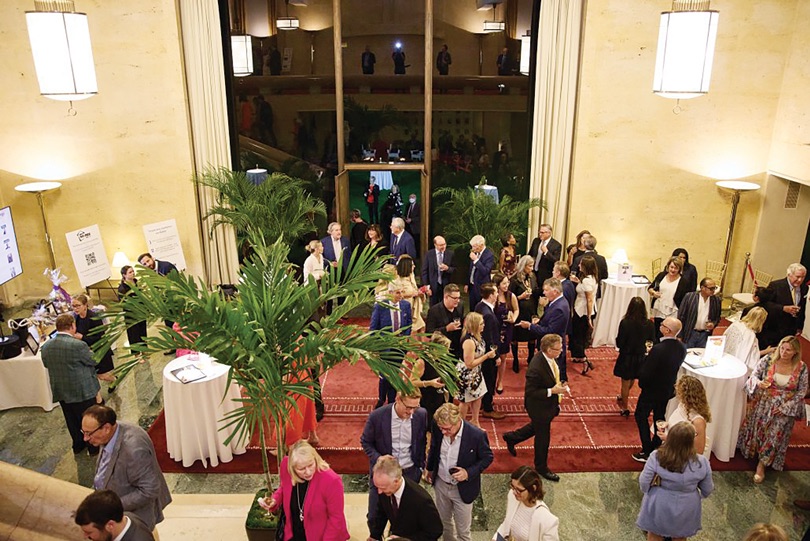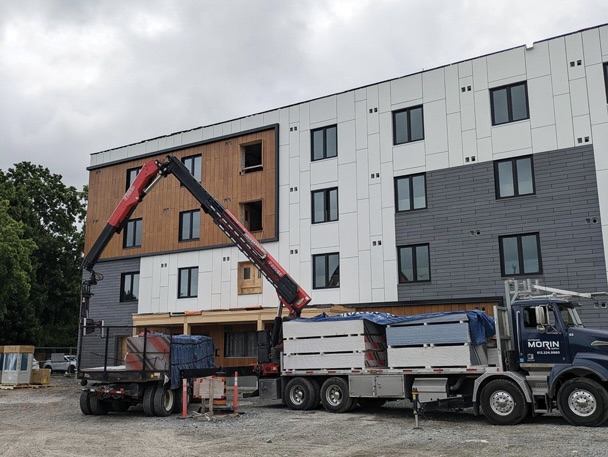*This article is sponsored by Ottawa Salus*
Ottawa’s housing system is under unprecedented pressure. Almost 3000 people are currently without a home in Ottawa, a 78% increase since 2018. This figure is at risk of increasing if investments in supportive and affordable housing fall short. The city’s Housing Needs Assessment highlights the gap: the centralized waitlist for affordable housing rose from 12,447 applicants in 2023 to 15,140 in 2024, yet only 1,155 applicants were housed—just eight per cent.
The challenge goes beyond numbers. Many waiting for housing face complex social and health needs. A fragmented system makes it difficult to transition from shelters or hospitals to permanent homes, leaving too many trapped in cycles of homelessness.
With winter approaching, immediate investments are needed—not only to expand shelter capacity but to build housing-first programs that break the cycle for good.
Supportive Housing: A Proven Path Forward
Supportive housing—permanent homes paired with mental health care, counselling, and life-skills support—consistently delivers strong results. It reduces shelter use, hospital visits, and justice system involvement while improving stability and recovery.
It’s also cost-effective: caring for someone in a psychiatric hospital costs $572 a day, compared to $72 a day to provide housing with community-based support.
A recent audit by Ottawa’s Auditor General echoed these findings and called for stronger performance measures, standardized care models, and better coordination among providers.
Supportive housing provider Ottawa Salus has embraced these recommendations. “It’s going to take all of us lifting together to make the impact that is needed,” says Mark MacAulay, President & CEO of Salus, which has provided supportive housing for nearly 50 years. “When we work together, we can meet people where they are—offering stability, security, and hope for a brighter future.”
Work is Underway
Salus is collaborating with partners including Matthew Perry House, The Royal Hospital, Ottawa Community Housing, and Rideauwood on new and existing projects. MacAulay emphasizes the strength of this approach: “We are fortunate to have a network of organizations with deep expertise. When we learn from each other, everyone benefits.”
Salus aims to double its capacity by 2030. The upcoming Capilano building, set to open in early 2026, and Matthew Perry House are significant steps toward that goal—both built through extensive partnerships and consultation.
Community Engagement: Soirée Salus
The annual Soirée Salus, presented by TD and hosted at the French Embassy, reflects this spirit of collaboration—bringing together donors, business leaders, and partners to celebrate progress and raise funds for future projects.
“Soirée Salus is about bringing people together,” says Fiona Murray, event Chair since 2017. “It’s more than a fundraiser—it’s a chance to connect, share ideas, and invest in solutions that change lives.”

Board member and 2019 OBJ FortyUnder40 winner Candace Sutcliffe adds:
“Business and community leaders have a critical role to play—through funding, partnerships, and sharing expertise—to help scale supportive housing and improve outcomes across the city. Partners like Eli Tannis and McDonald Brothers’ Construction exemplify this kind of leadership, and we’re incredibly grateful for their commitment to building a stronger, healthier community. We will be honoring them with two new awards at this year’s soirée: the Salus Changemaker Award and the Salus Community Champion Award.”
With new projects in motion, strong partnerships, and growing community support, Ottawa Salus has the tools to help turn the tide on homelessness—if we act together. The path forward is clear: collaborative action, innovative housing, and community engagement.
